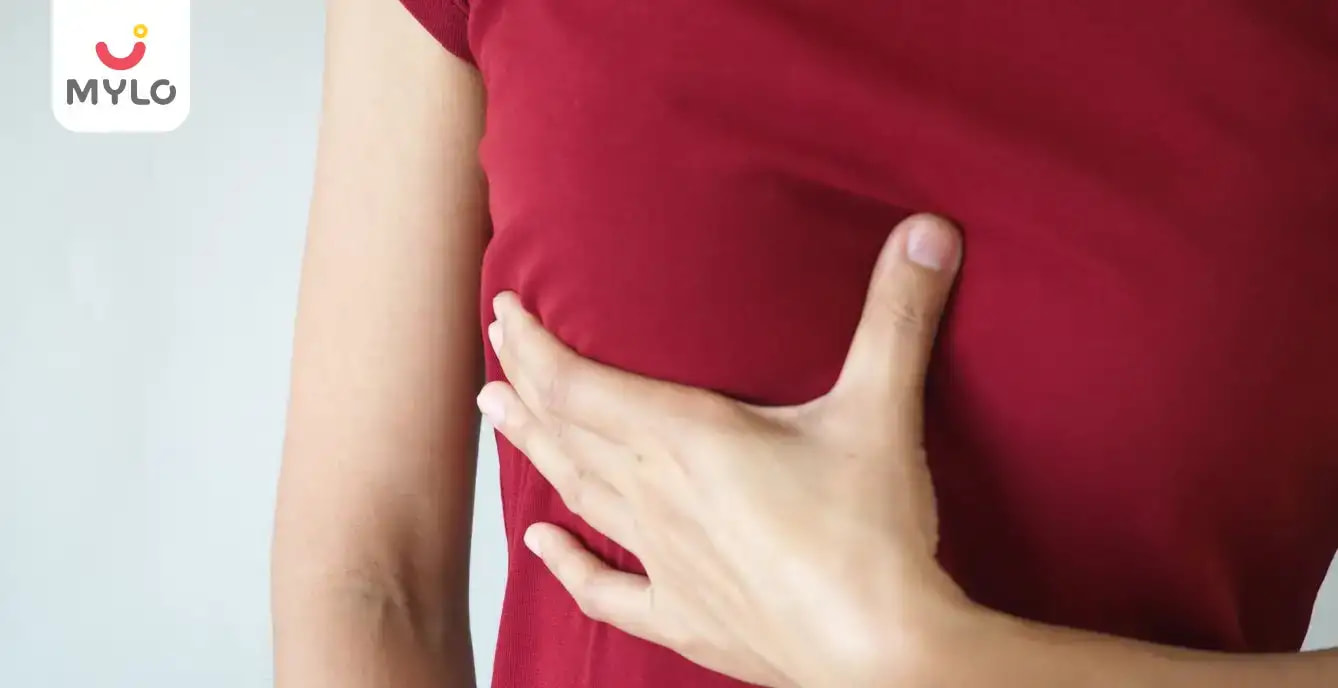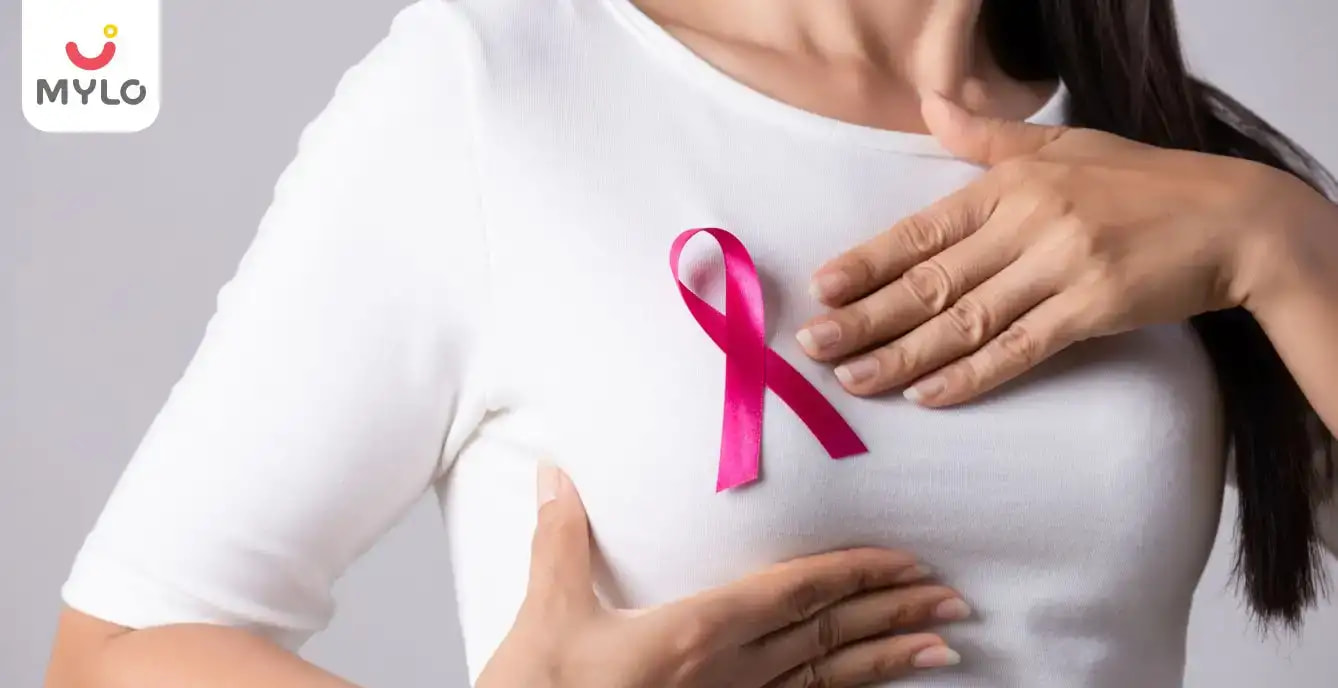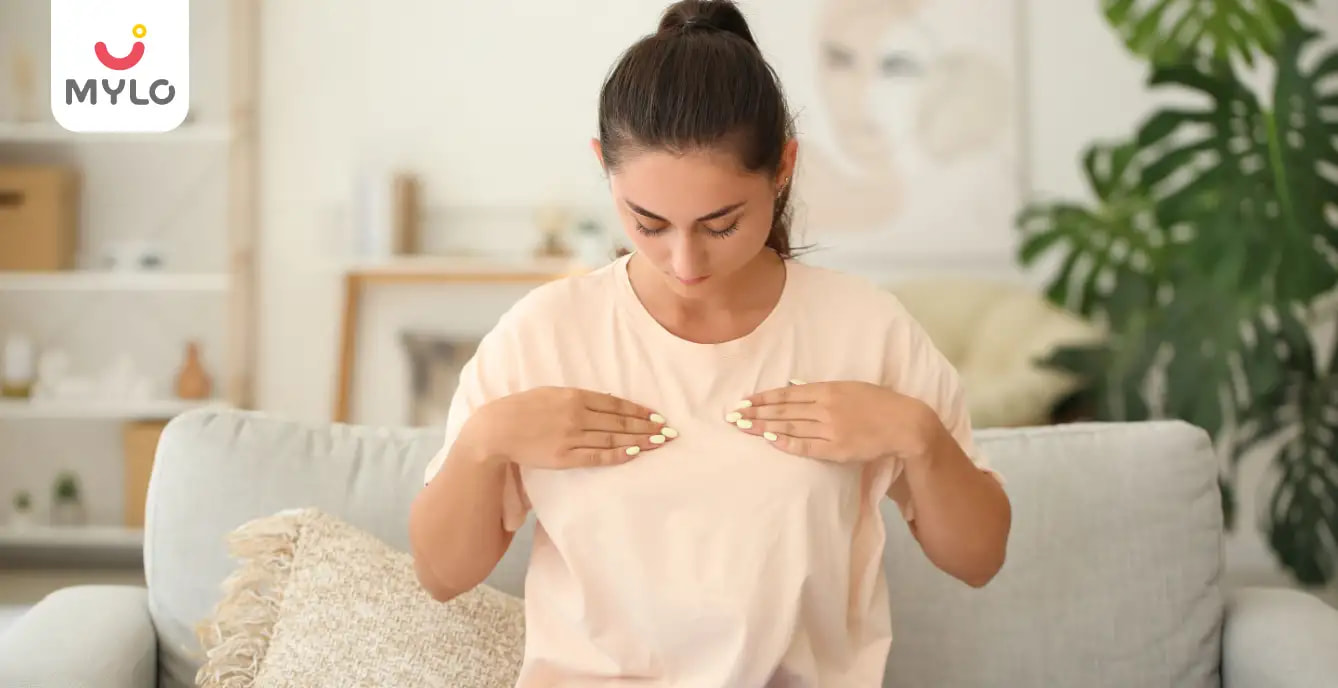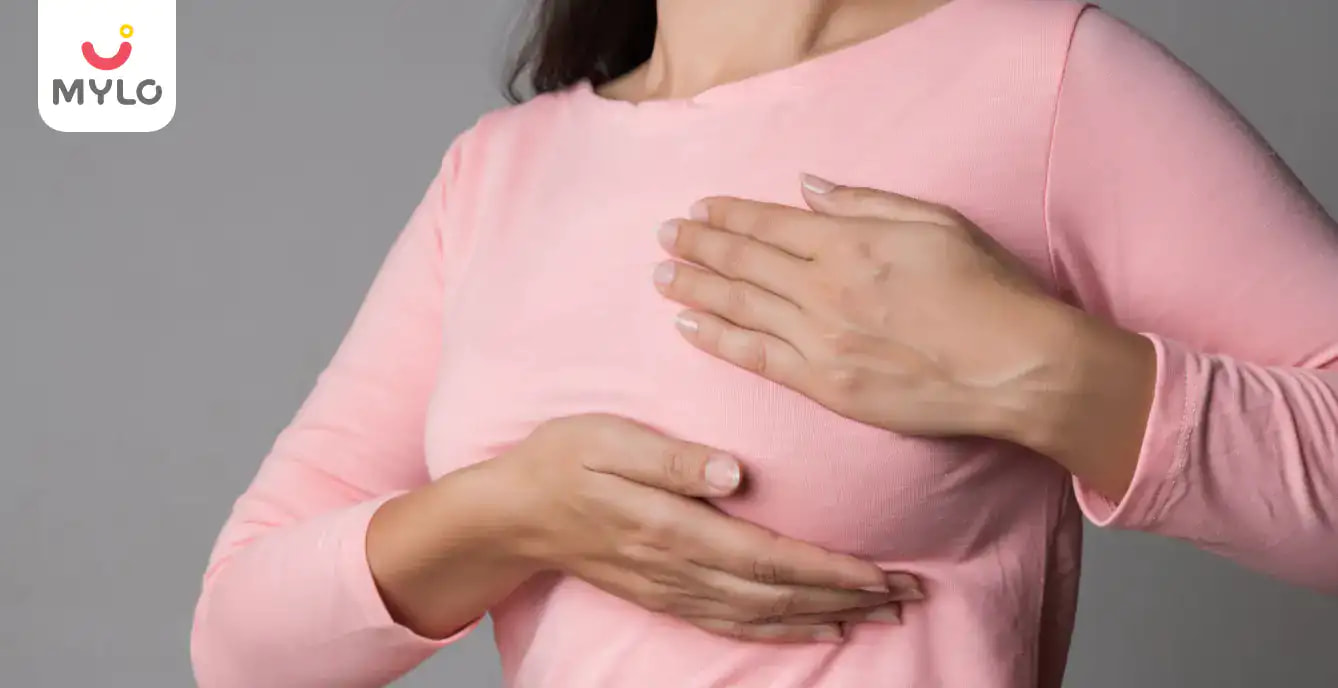Home

Breast Lump

What Is Breast Cyst: Types, Causes, Symptoms & Treatment
In this Article
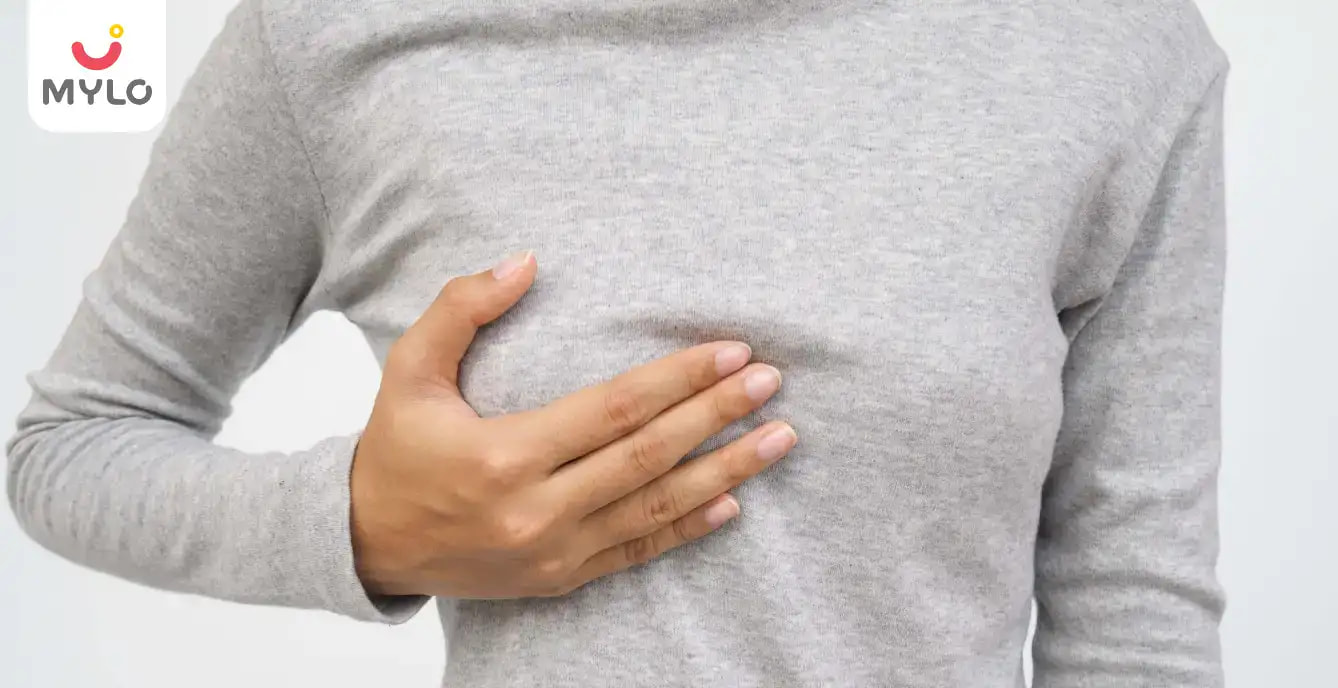
Breast Lump
What Is Breast Cyst: Types, Causes, Symptoms & Treatment
Updated on 3 November 2023
Patients diagnosed with a breast cyst may often wonder what cysts in the breast means and their treatment options. This blog post will discuss the different types of breast cysts, their causes, and the various treatment options available.
Read ahead to learn more!
What are Breast Cysts?
Breast cysts are fluid-filled sacs in the breast tissue. They can occur in any breast and are caused by various factors, including hormonal changes during pregnancy or menopause, infection, inflammation, breast injury, or trauma. The size of a breast cyst is usually determined by how much fluid it contains.
Breast cysts are found in both women and men. However, they are more common in women because they tend to occur around puberty and pregnancy. Furthermore, they are more common in women with a history of pregnancy or breastfeeding, although they can occur at any age, race, or ethnicity.
Cysts in breasts may come in many different sizes and shapes, with some being so small that they can only be felt on the surface of the breast tissue. Cysts can form during pregnancy or after menopause when there is a decrease in estrogen levels. They also may be related to an overgrowth (hypertrophy) of glandular tissue within the breast.
Types of Breast Cysts
Breast cysts are fluid-filled sacs that develop in the breasts. They can be benign (noncancerous) or malignant (cancer). However, the possibility of a breast cyst being cancerous is often very rare. There are many different types of breast cysts, but there are three main classes of breast cysts:
-
Simple Cysts
As the name suggests, such cysts are filled with fluid and are always benign.
-
Complicated Breast Cyst
This cyst has some solid mass floating in the cyst fluid. Hence, it needs to be checked for any cancerous cell growth through a needle biopsy.
-
Complex Breast Cysts
Fibroadenomas generally larger than 3mm are knowns as complex breast cysts. They can be cancerous and hence need to be checked with a needle biopsy.
Causes of Breast Cysts
There are many potential breast cysts causes, and often the exact cause is unknown. Breast cysts may be caused by hormonal changes, trauma, or other underlying health conditions.
Hormonal changes are one of the most common causes of breast cysts. Cysts may form during adolescence, pregnancy, menopause, or taking hormonal medications such as birth control pills.
Trauma to the breast can also lead to the formation of cysts. It may include repetitive injury from activities such as running or from a single traumatic event.
Several underlying health conditions can cause cysts under the breasts. These include polycystic ovary syndrome, fibrocystic breast changes, and certain types of cancer.
Symptoms of Breast Cysts
Breast cysts usually don't cause any symptoms, although they may feel like a lump in the breast. But if a breast cyst ruptures, causing infection or bleeding, it could be severe and require immediate treatment by a doctor.
Other symptoms of breast cysts can include a lump in the breast, painful breast cysts or tenderness in the breast, and changes in the breast tissue. Cysts are usually benign, which means they are not cancerous. However, in some cases, a cyst may be cancerous. If a person has any of these breast cyst symptoms, it is essential to see a doctor so that they can rule out the possibility of cancer.
Treatment options for Breast Cysts
There are a few different treatment options for breast cysts, depending on the severity of the cyst. If the cyst in the breast is small and doesn't cause any pain, the patient's doctor may recommend leaving it alone. In some cases, the cyst may go away on its own.
If the cyst is larger or causes pain, the doctor may recommend aspirating the cyst. It involves inserting a needle into the breast cyst and drawing out the fluid. It can usually be done in the doctor's office. If the cyst is large and doesn't respond to aspiration, the patient may need surgery to remove it. It is usually a last resort option.
Conclusion
Breast cysts are fluid-filled sacs that form on the breast. Cysts can be painful and unsightly, but they are generally non-cancerous. Breast cysts are usually small and will not cause any problems, but they can become large enough to affect a person's daily life if left untreated. However, there are cases where breast cysts are found to be cancerous; hence people need to check their cysts with their healthcare provider. A simple mammogram or a needle biopsy can help determine if the cyst is benign or malignant. And finally, if someone has concerns about breast cysts, talk to a doctor.
References
Merih Güray Durak , Ilgın Karaman, Tülay Canda, Pınar Balci, Omer Harmancioğlu. Cystic fibroadenoma of the breast: a case report. https://pubmed.ncbi.nlm.nih.gov/
Cleveland Clinic medical professional. 24 august, 2020. Breast Cysts. https://my.clevelandclinic.org/



Written by
Madhavi Gupta
Get baby's diet chart, and growth tips

Related Articles
Related Questions
Hello frnds..still no pain...doctor said head fix nhi hua hai..bt vagina me pain hai aur back pain bhi... anyone having same issues??

Kon kon c chije aisi hai jo pregnancy mei gas acidity jalan karti hain... Koi btayega plz bcz mujhe aksar khane ke baad hi samagh aata hai ki is chij se gas acidity jalan ho gyi hai. Please share your knowledge

I am 13 week pregnancy. Anyone having Storione-xt tablet. It better to have morning or night ???

Hlo to be moms....i hv a query...in my 9.5 wk i feel body joint pain like in ankle, knee, wrist, shoulder, toes....pain intensity is high...i cnt sleep....what should i do pls help....cn i cosult my doc.

Influenza and boostrix injection kisiko laga hai kya 8 month pregnancy me and q lagta hai ye plz reply me

Related Topics
RECENTLY PUBLISHED ARTICLES
our most recent articles

Diet & Nutrition
গর্ভাবস্থায় আলুবোখরা: উপকারিতা ও ঝুঁকি | Prunes During Pregnancy: Benefits & Risks in Bengali

Diet & Nutrition
গর্ভাবস্থায় হিং | ঝুঁকি, সুবিধা এবং অন্যান্য চিকিৎসা | Hing During Pregnancy | Risks, Benefits & Other Treatments in Bengali

Women Specific Issues
স্তনের উপর সাদা দাগ: লক্ষণ, কারণ এবং চিকিৎসা | White Spots on Nipple: Causes, Symptoms, and Treatments in Bengali

Diet & Nutrition
গর্ভাবস্থায় পোহা: উপকারিতা, ধরণ এবং রেসিপি | Poha During Pregnancy: Benefits, Types & Recipes in Bengali

Diet & Nutrition
গর্ভাবস্থায় মাছ: উপকারিতা এবং ঝুঁকি | Fish In Pregnancy: Benefits and Risks in Bengali

Diet & Nutrition
গর্ভাবস্থায় রেড ওয়াইন: পার্শ্ব প্রতিক্রিয়া এবং নির্দেশিকা | Red Wine During Pregnancy: Side Effects & Guidelines in Bengali
- ইনার থাই চ্যাফিং: কারণ, উপসর্গ এবং চিকিৎসা | Inner Thigh Chafing: Causes, Symptoms & Treatment in Bengali
- গর্ভাবস্থায় ব্রাউন রাইস: উপকারিতা ও সতর্কতা | Brown Rice During Pregnancy: Benefits & Precautions in Bengali
- Velamentous Cord Insertion - Precautions, Results & Safety
- Unlock the Secret to Flawless Skin: 7 Must-Have Qualities in a Face Serum
- Unlock the Secret to Radiant Skin: How Vitamin C Serum Can Transform Your Complexion
- Gender No Bar: 10 Reasons Why Everyone Needs a Body Lotion
- Unlock the Secret to Radiant Skin How to Choose the Perfect Body Lotion for Your Skin Type
- Top 10 Reasons to Apply a Body Lotion After Every Bath
- Communication in Toddlers: Milestones & Activities
- How to Improve Vocabulary for Toddlers?
- A Comprehensive Guide to Understanding Placenta Accreta
- Vulvovaginitis in Toddlers Causes, Symptoms and Treatment
- A Comprehensive Guide to Understanding Cerebral Palsy in Children
- Bitter Taste in Mouth During Pregnancy: Understanding the Causes and Remedies


AWARDS AND RECOGNITION

Mylo wins Forbes D2C Disruptor award

Mylo wins The Economic Times Promising Brands 2022
AS SEEN IN

- Mylo Care: Effective and science-backed personal care and wellness solutions for a joyful you.
- Mylo Baby: Science-backed, gentle and effective personal care & hygiene range for your little one.
- Mylo Community: Trusted and empathetic community of 10mn+ parents and experts.
Product Categories
baby carrier | baby soap | baby wipes | stretch marks cream | baby cream | baby shampoo | baby massage oil | baby hair oil | stretch marks oil | baby body wash | baby powder | baby lotion | diaper rash cream | newborn diapers | teether | baby kajal | baby diapers | cloth diapers |



